Understanding fractions Geometry Worksheets for Ages 4-9
36 filtered results
-
From - To
Unlock the world of fractions and geometry with our "Understanding Fractions" worksheets tailored for ages 4-9. Designed by educational experts, these fun and engaging activities help young learners grasp the concept of fractions through shapes, colors, and kid-friendly illustrations. With our easy-to-follow exercises, children will develop foundational geometry skills while effortlessly learning to identify, compare, and create fractions. Perfect for classroom use or at-home practice, our worksheets foster a love for math by making learning interactive and enjoyable. Boost your child's confidence and math proficiency today with Kids Academy’s expertly crafted resources.
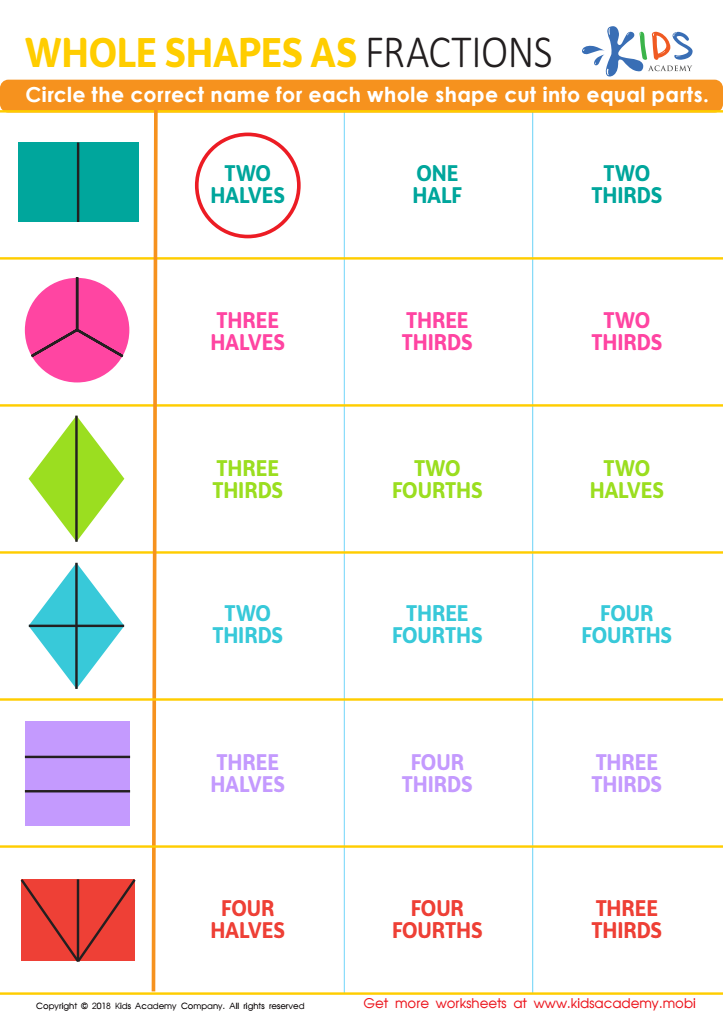

Whole Shapes as Fractions Worksheet
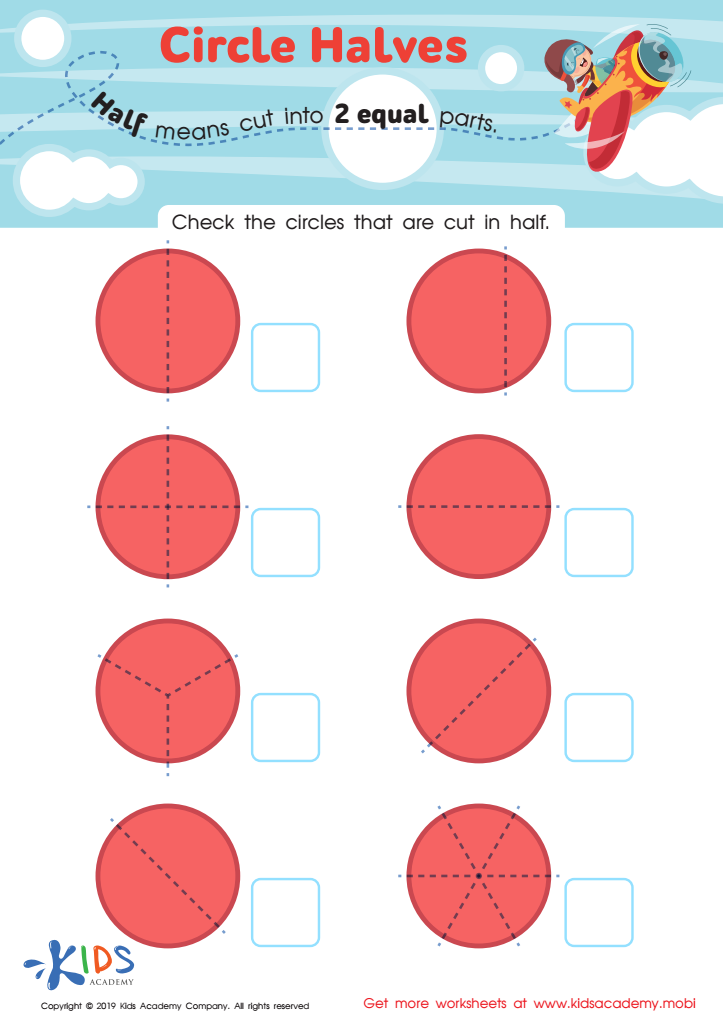

Circle Halves Worksheet
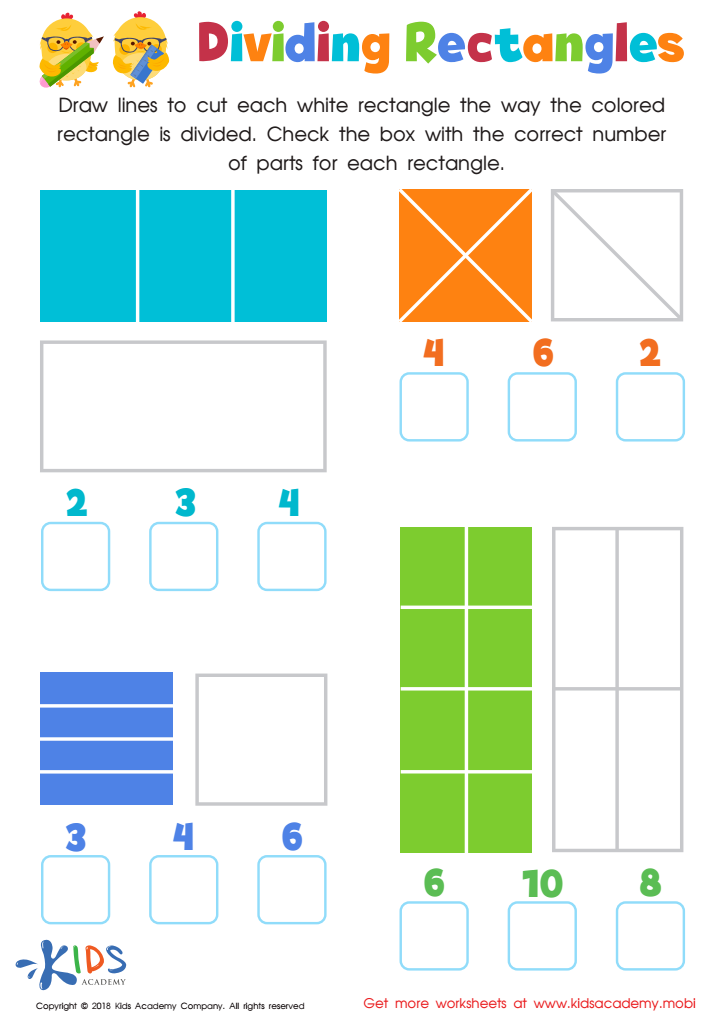

Dividing Rectangles Worksheet
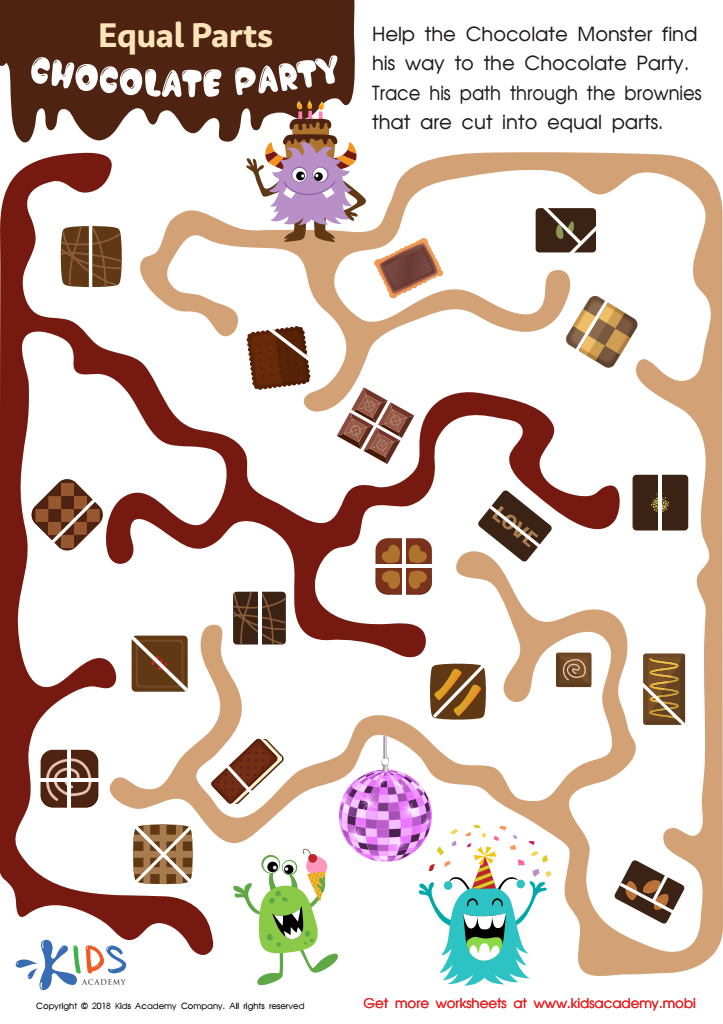

Equal Parts: Chocolate Party Worksheet
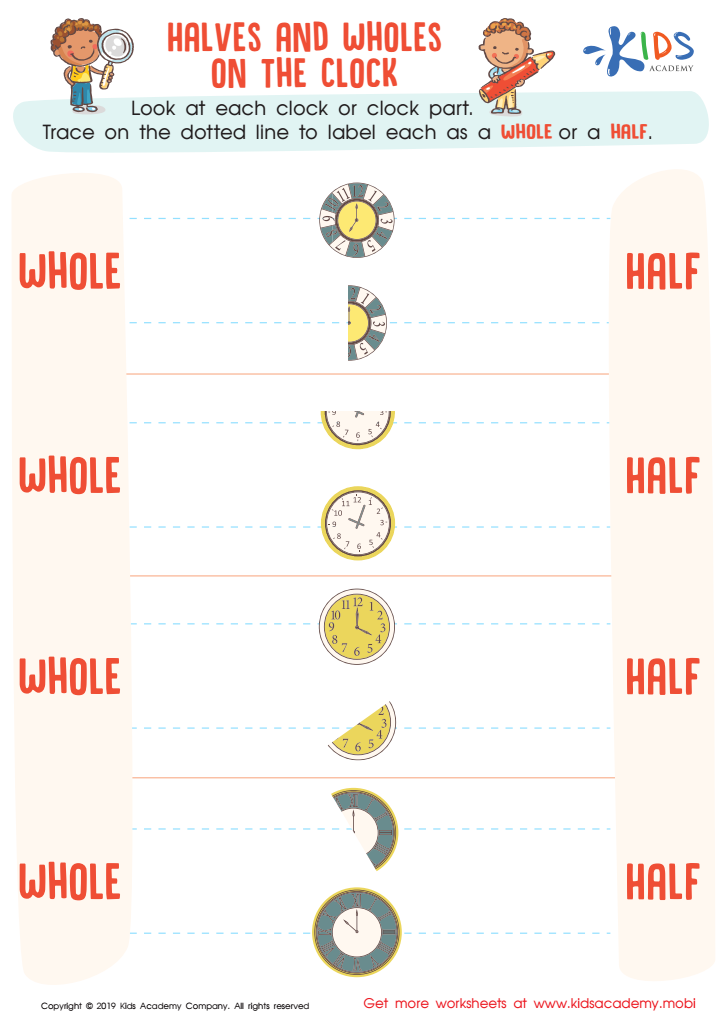

Halves and Wholes on the Clock Worksheet
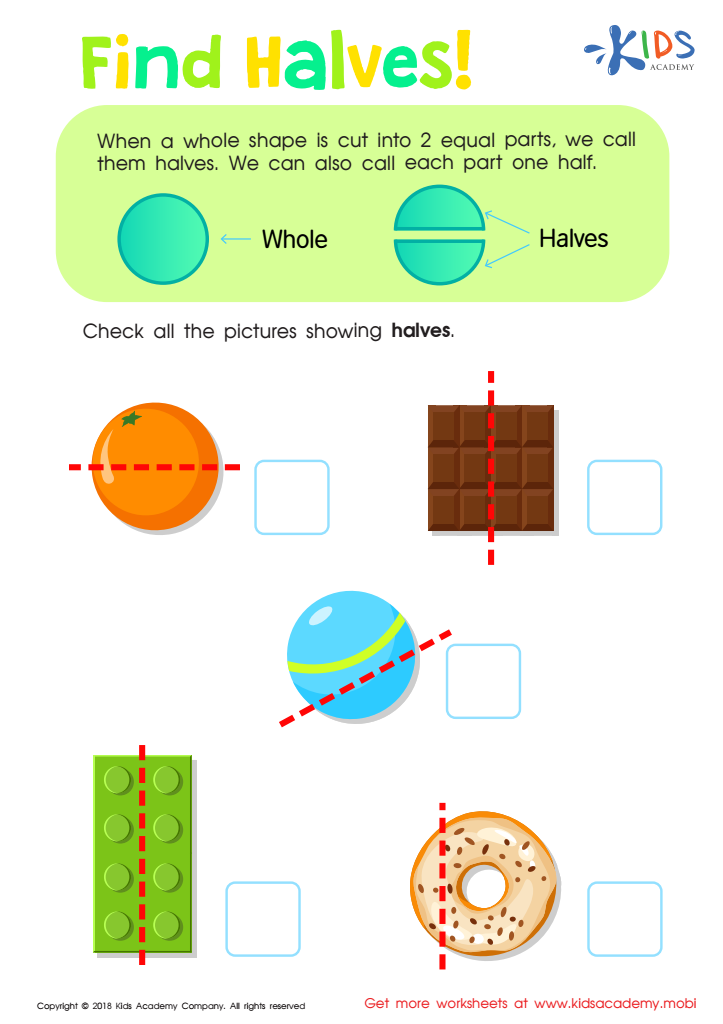

Find Halves Worksheet
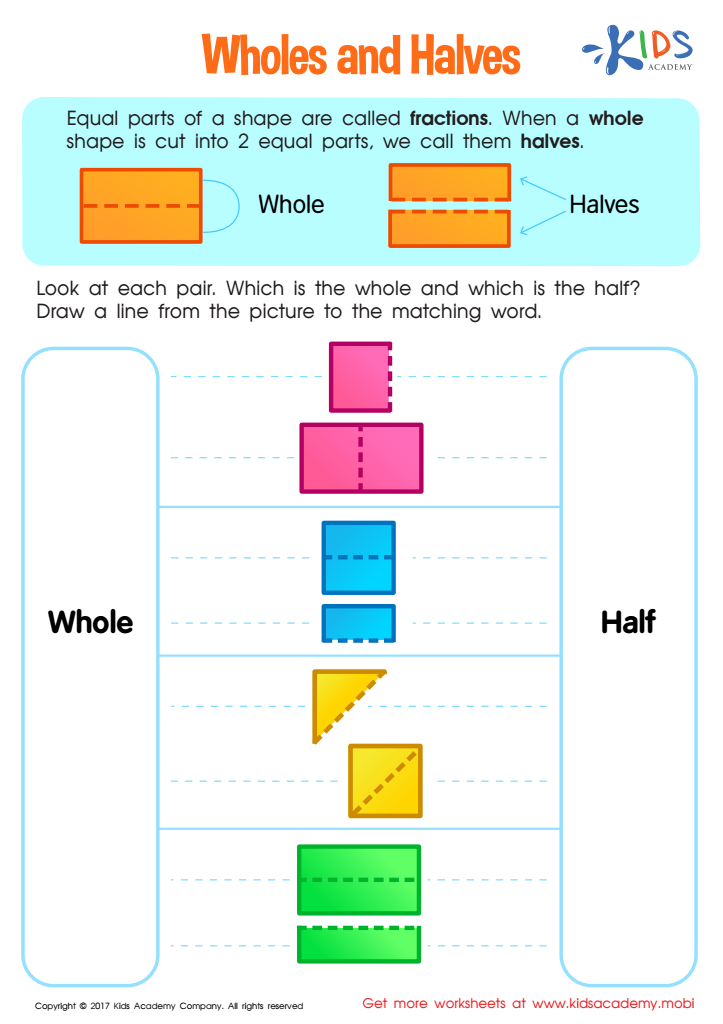

Wholes and Halves Worksheet
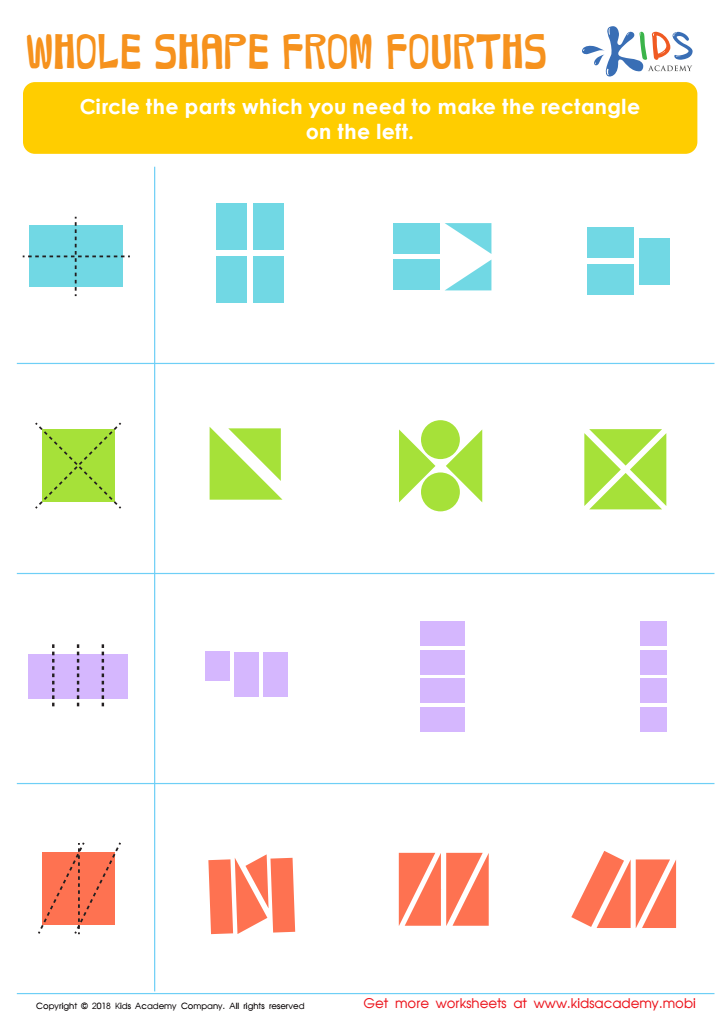

Whole Shape from Fourths Worksheet
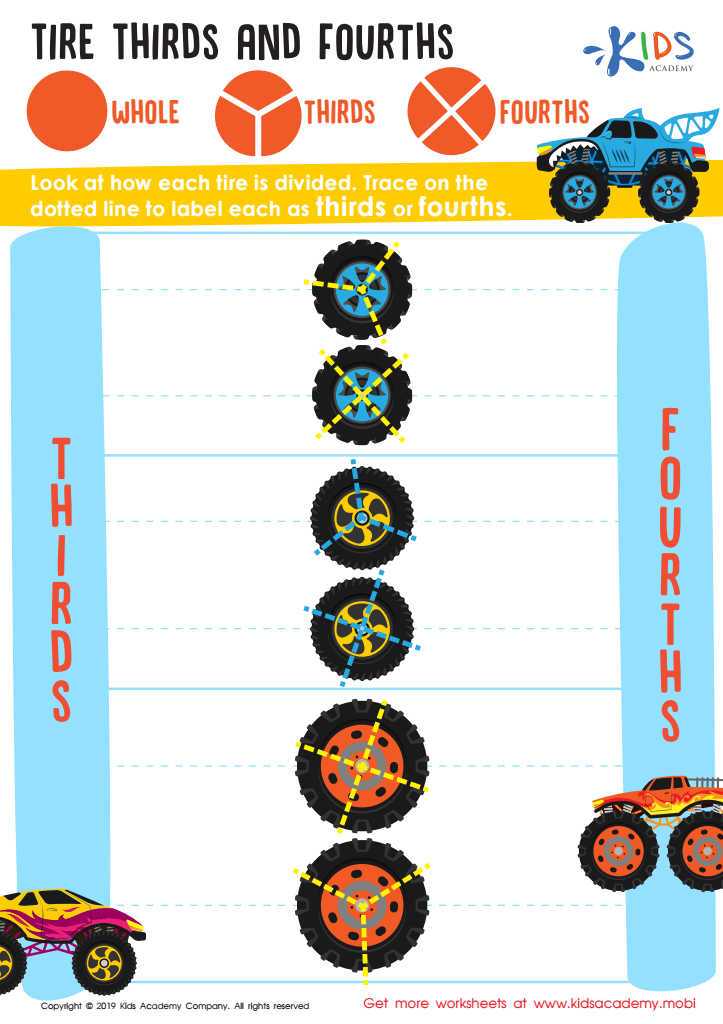

Tire Thirds and Fourths Worksheet
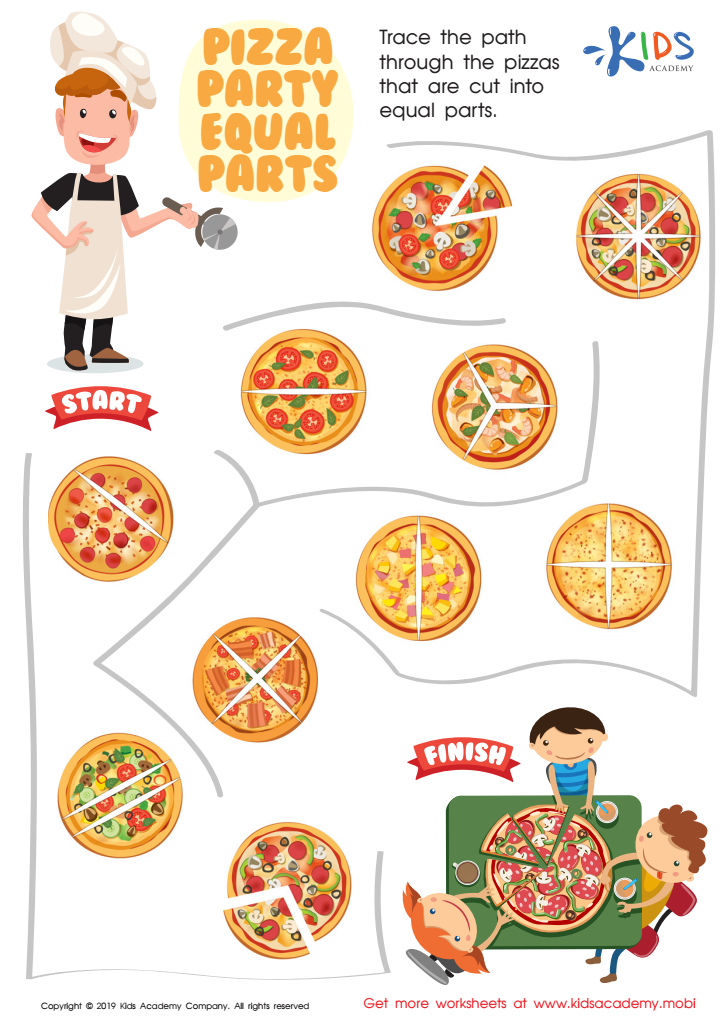

Pizza Party Equal Parts Worksheet
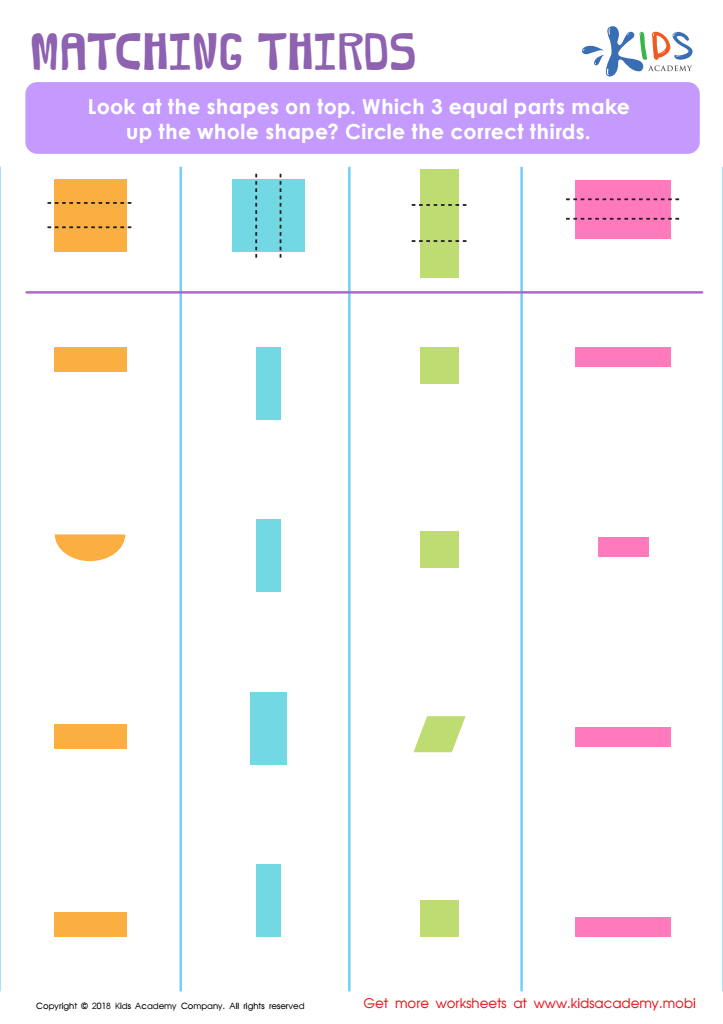

Matching Thirds Worksheet
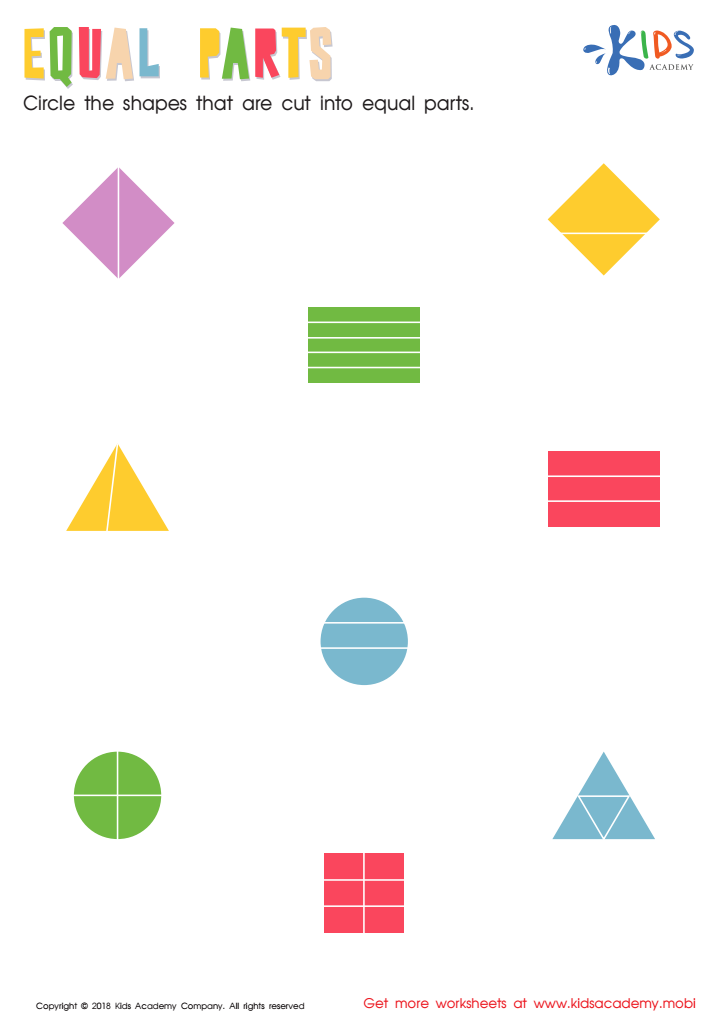

Equal Parts: Shapes Worksheet
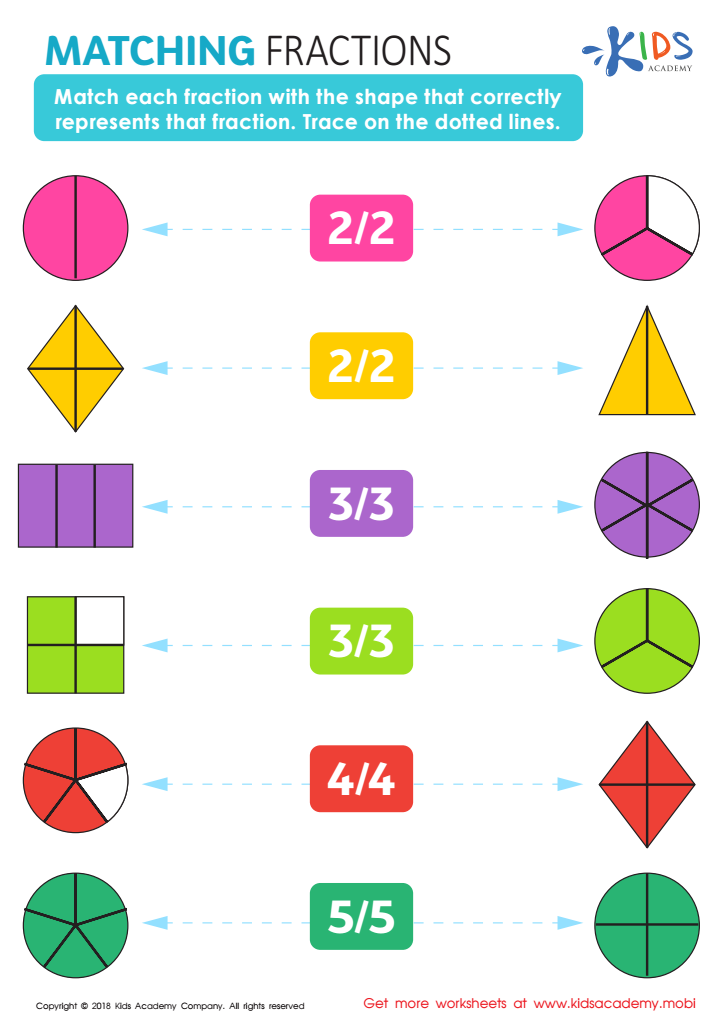

Matching Fractions Worksheet
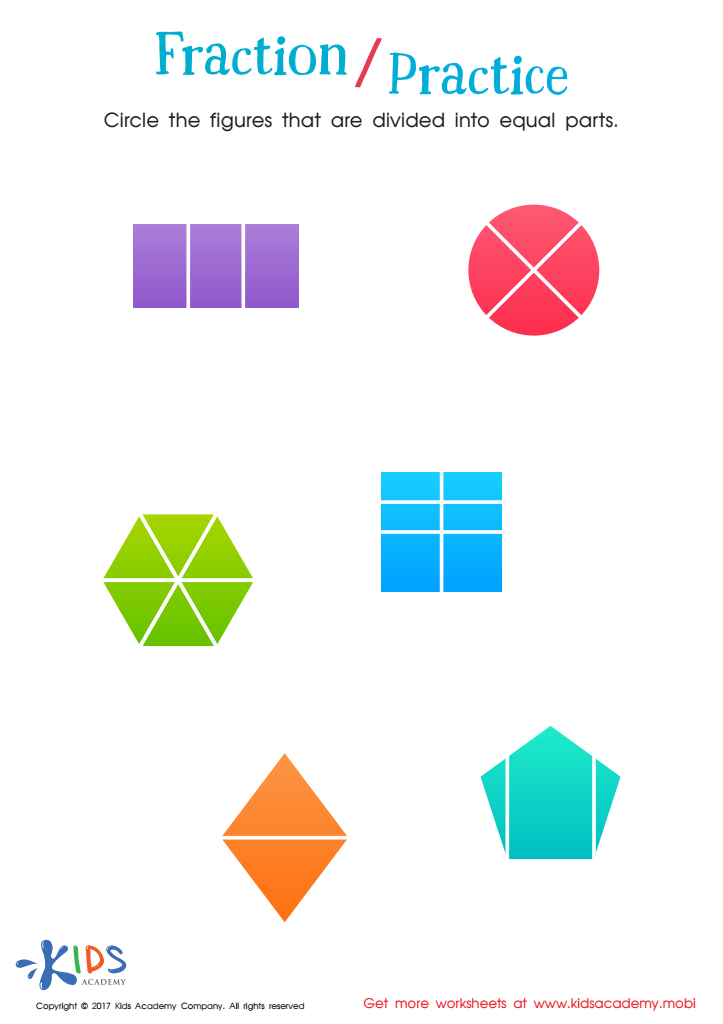

Fractions: Shapes Worksheet
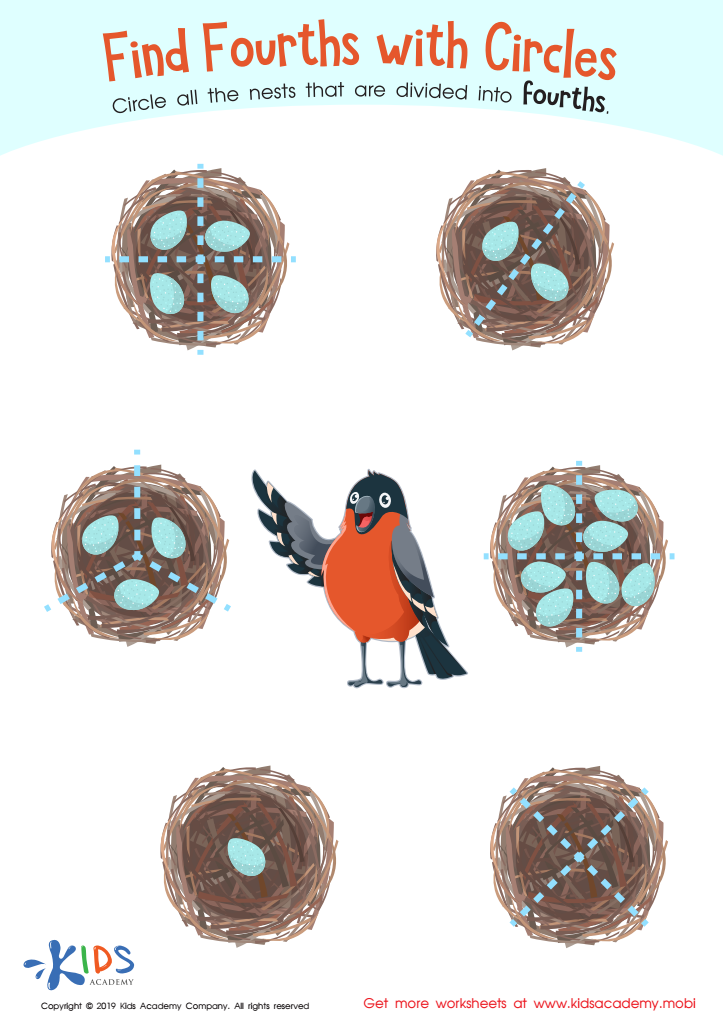

Find Fourths Circles Worksheet
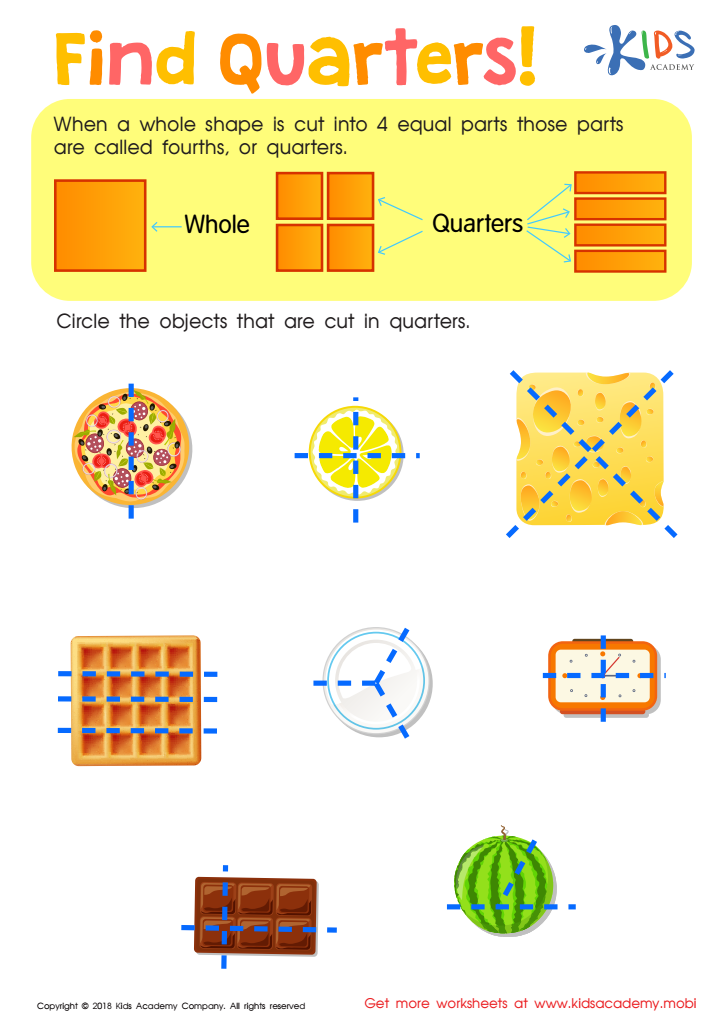

Find Quarters Worksheet
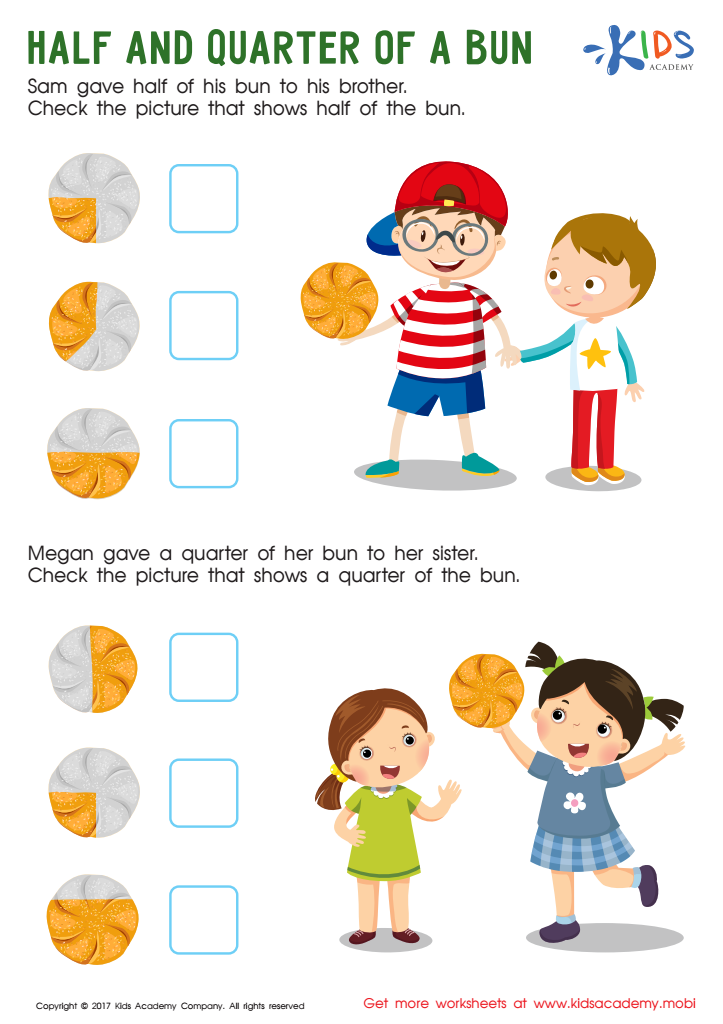

Half and Quarter of a Bun Worksheet
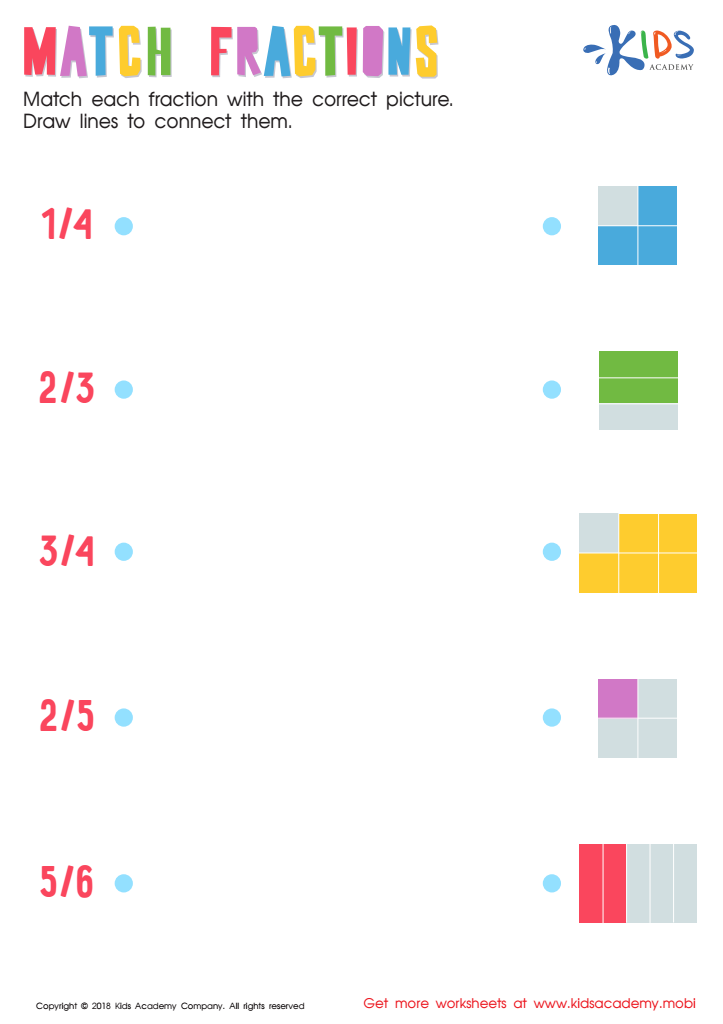

Match Fractions Worksheet
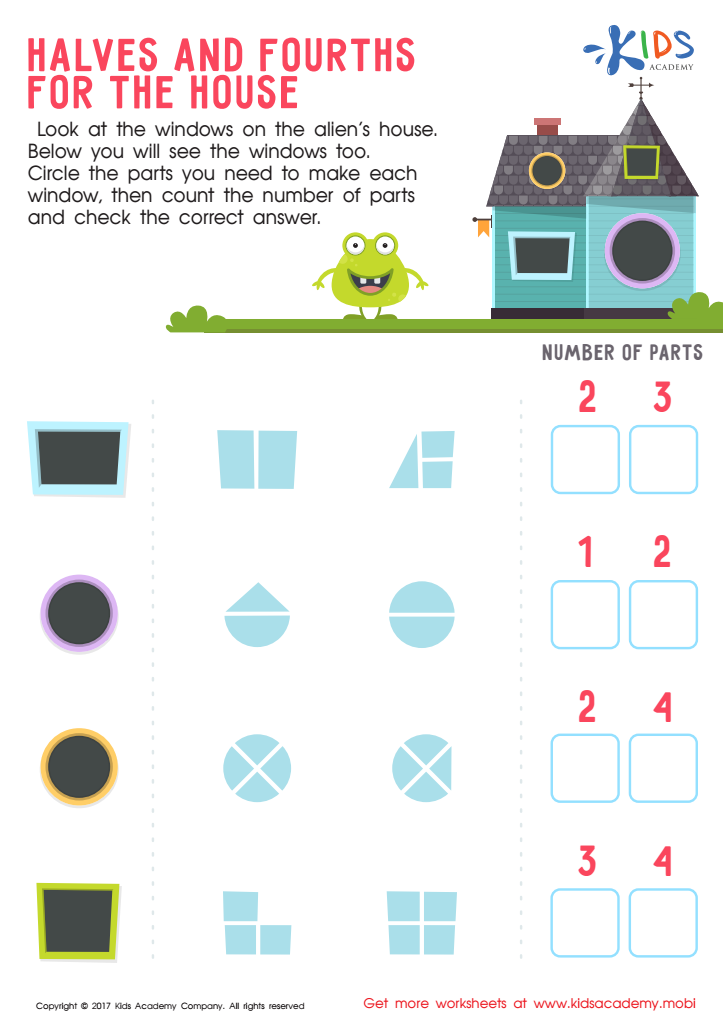

Halves and Fourths for the House Worksheet
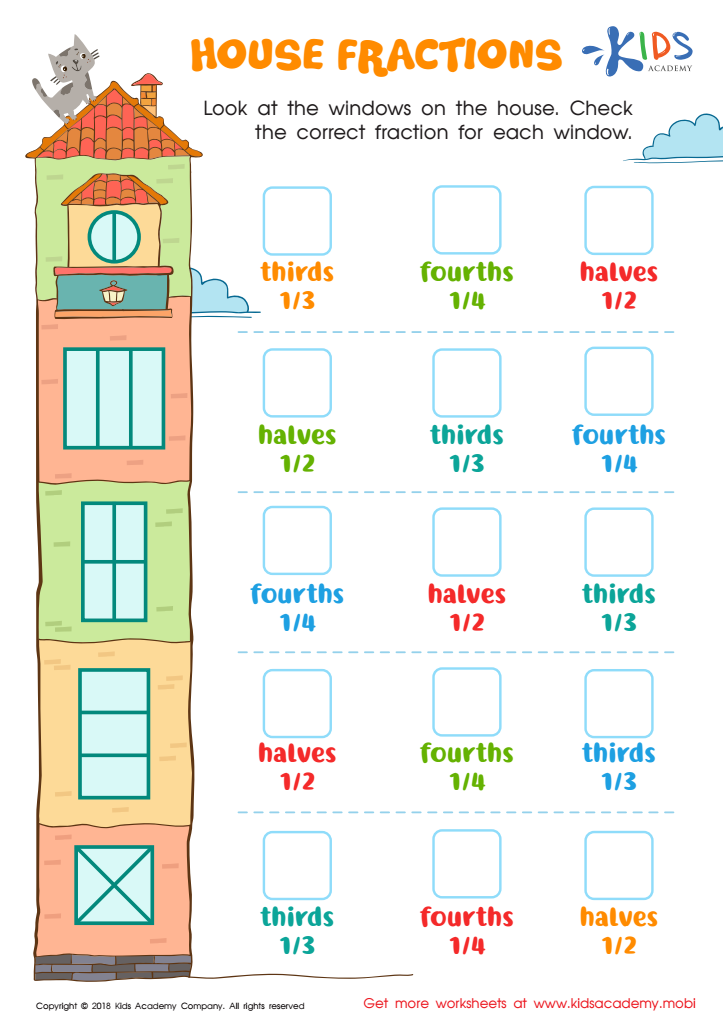

House Fractions Worksheet
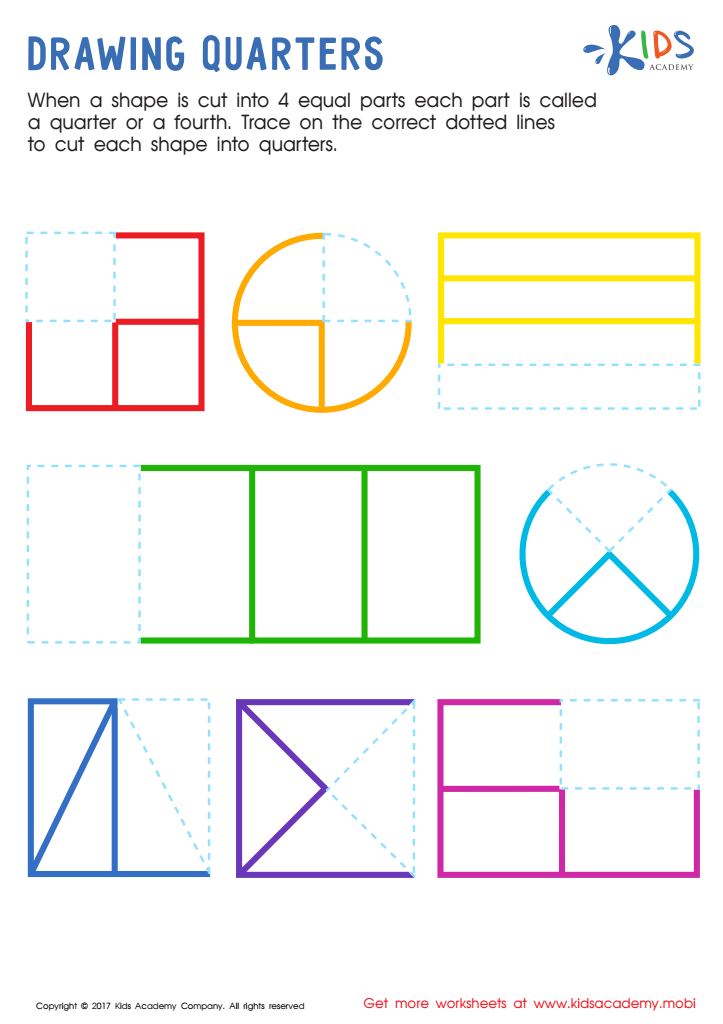

Drawing Quarters Worksheet
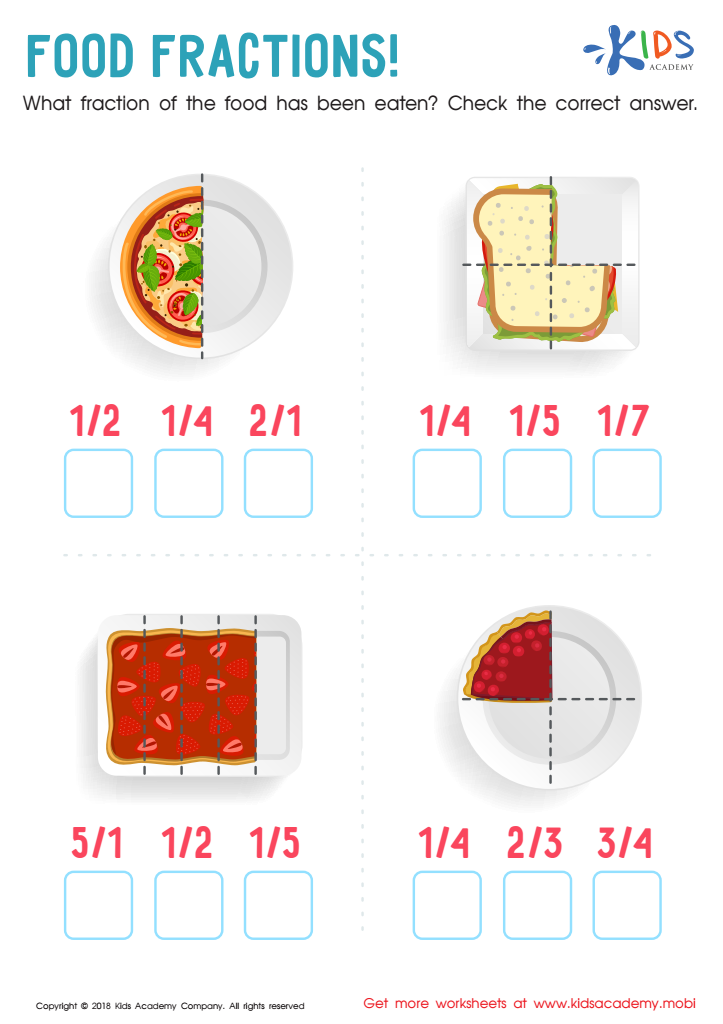

Food Fractions Worksheet
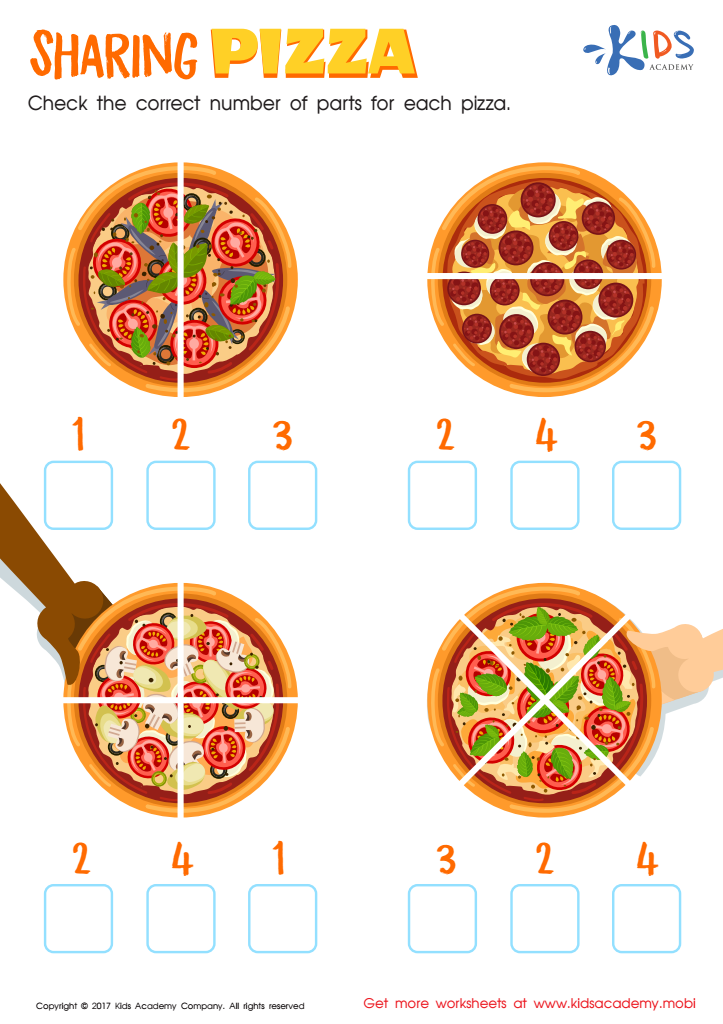

Sharing Pizza Worksheet
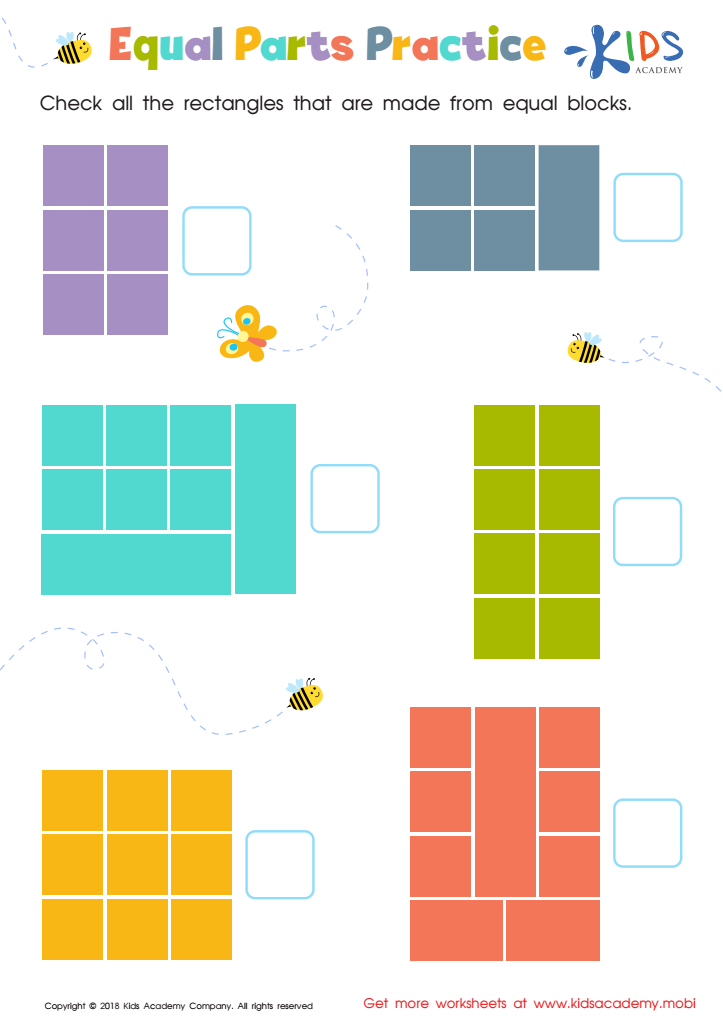

Equal Parts Practice Worksheet
Understanding fractions and geometry at an early age (ages 4-9) is essential for several reasons. First, these mathematical concepts serve as foundational building blocks for more advanced math topics, helping children to develop critical thinking and problem-solving skills. Mastery of fractions aids in understanding proportions, ratios, and division, which are integral in various real-life situations, such as cooking or sharing. Geometry, on the other hand, enhances a child's spatial awareness and ability to visualize shapes, which can improve cognitive development and map-reading skills.
Furthermore, early comprehension of these concepts boosts a child's confidence in their mathematical abilities, making them more likely to engage positively with math in future school years. This period, known as the 'concrete operational stage' according to Piaget’s theory of cognitive development, is when children start to grasp more complex ideas; introducing fractions and geometry aligns perfectly with their cognitive growth.
Additionally, engaging children with these concepts can be fun and interactive, using tools like fraction circles, shape puzzles, and drawing exercises. Such activities can foster a love for math, making learning an enjoyable process rather than a challenging chore. Clearly, early exposure to fractions and geometry sets the stage for a robust mathematical foundation, better equipping kids for their academic journey.

 Assign to My Students
Assign to My Students


























